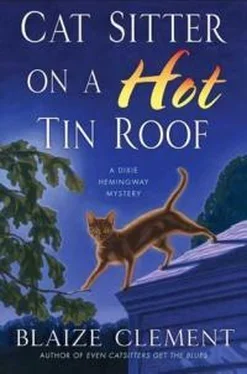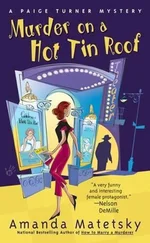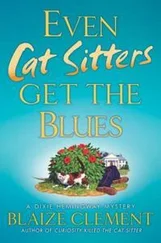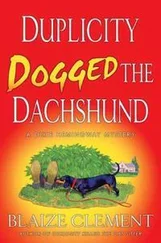She shook water from her fingertips, and I handed her the paper towel. She looked sternly at me while she dried her hands.
“You know how to tell what a man’s really like? You watch how he handles his package. If he’s always touching it, like he’s gotta make sure it’s still there since the last time he checked, then you know he thinks he’s got God between his legs. He’ll expect you to get down on your knees to it too. If you don’t, hoo-ha, he’ll get all hurt like you took the Lord’s name in vain. You don’t want a man like that.”
She tossed the wadded paper towel in the basket.
“You want a man that lets his stuff ride easy, acts like he cares more about your stuff than his own. ’Course he don’t, ’cause he’s a man, but at least he’s smart enough to act like he does.” She looked intently at me. “I’m just telling you this ’cause I know you don’t have no mama. A girl’s gotta have somebody warn her about things like that.”
“I appreciate that, Tanisha.”
Her face creased in a deep dimpled smile. “That man you was with this morning, he’s got a big tidy package, but I never seen him touch it once. I was you, I’d keep him around.”
Using her big behind to bump open the restroom door, she left me staring after her.
The whimper I made sounded a lot like Mazie’s sounds of stress.
26
Back in the Bronco, I sat a minute to get my act together, then pulled out my cell and made the call to Hal that I should have made a long time ago. Then I called Pete and told him what I wanted him to do. When I put the phone back in my pocket, I felt as if a thousand-pound load had been lifted from my shoulders.
I was halfway to Fish Hawk Lagoon when I remembered that I hadn’t told Guidry about meeting Frederick Vaught.
At Mazie’s house, I parked in the driveway and looked toward Laura’s house. No cars were in her driveway, and I didn’t see any sign of Celeste. Maybe she had got on her broom and returned to Dallas.
Before I went inside, I called Guidry on my cell. My fist did a victory pump in the air when I got his voice mail. I love voice mail. I didn’t want to talk to him, I just wanted to give him information.
I said, “I forgot to tell you that Frederick Vaught accosted me this morning at the Sea Breeze. I came out to run with Billy Elliot, and Vaught popped out from behind a bush. He played the big bad scary monster, told me to stop asking questions about him, said I’d besmirched his good name. Like he still has a good name. He didn’t threaten me or anything, but I thought you should know.”
Having done my duty, I clicked off and slid out of the Bronco.
A dark sedan slowly passed in the street, the driver looking uncertainly toward Mazie’s house as if he didn’t recognize it. He may not have known for sure which house he was looking for, but I knew for sure who he was—the big muscled man who wore power like a suit, the man I’d thought was Laura’s husband, the man I’d seen her with on the jogging path. The man who may have killed her.
He pulled into Laura’s driveway, the car disappearing behind the trees, and I stood staring at the space he’d left. I thought about the locksmith’s truck that had been at the house the night before. Ordinarily, if locks are changed following a crime, the new keys are immediately put into the hands of the home owner or a member of the owner’s family. But Celeste had left while the locksmith’s truck had still been in the driveway the night before, and unless she’d returned she hadn’t got the keys.
Martin Freuland surely knew that Laura was dead. If Guidry hadn’t questioned him yet, he certainly knew he would be a logical suspect for her murder. So what was he doing at Laura’s house? And what had the locksmith done with the new keys? I had an image of him calling Guidry or Celeste and saying, “I put the keys under a rock by the front door,” or some such silliness.
I didn’t really believe he would do that, but on the other hand, Freuland hadn’t backed that sedan out of Laura’s driveway yet, so what was he doing? I imagined him standing at Laura’s door, staring into the house through the glass panels. Celeste had told Guidry that Laura had tipped off the feds about his work for drug dealers. Guidry had said he was under investigation and could end up spending twenty or thirty years in prison. Maybe Laura had records in her house that implicated him, and he wanted to destroy them.
While I was wondering all that, my feet had gradually moved down Mazie’s driveway and turned onto the sidewalk, sort of ambling toward Laura’s house as if they didn’t really have a destination. I told myself that it wasn’t any of my business. I told myself that Martin Freuland hadn’t been arrested for Laura’s murder, that he was a free man, and that there was no law that said he couldn’t go to Laura’s door. But my feet kept moving, and when I got to Laura’s driveway I turned in and ambled past the empty sedan.
My Keds were careful not to make scuffing sounds, which might have seemed as if I were sneaking up on the man at the door, but it is simply the nature of Keds to do that. Especially when they’re careful.
Martin Freuland was bent forward examining the pane of glass closest to the lock. The one that would, if it were knocked out, allow a person to stick a hand in and turn the thumb switch that unlocked the door. Forget new keys, that door would be a snap to open.
I said, “You may not have noticed, but the door is locked.”
He jerked upright and spun to look at me, mouth open, eyes wide. He looked like a man who wasn’t accustomed to being surprised. He also looked desperate.
Rage began to climb me like a swarm of fire ants. I’d been deceived, tricked, conned, and manipulated. I’d had old murky fears and guilts raise their hoary heads and slash at my sense of safety. I’d been accosted by a psycho nurse who smothered old ladies in their beds, and now I was confronting a corrupt bank president who might also be a murderer. At the very least, he was obviously contemplating breaking into Laura’s house.
He walked toward me, his face not sure whether to try for appeasement or defiance. The first time I’d seen him, I’d seen him as a former football player turned orthopedic surgeon. Even knowing he was really a bank president, the form still applied. As Laura had said, the man was big. He wore an expensive charcoal suit with a pale blue shirt and dark tie, the threads of power in any profession.
He said, “You’re Ms. Hemingway. I’m told you were one of the last people to see Laura alive.”
“Who told you that?”
He made a vague gesture, erasing my question as if it weren’t important. “They say you’re taking care of her cat. I gave her that cat as a birthday present. I named him Cohiba for the cigar.”
I squinted at him, wondering how he knew who I was.
I said, “I know. Laura told me.”
His face lit. “She spoke of me?”
“She said the man who’d given Leo to her had called him Cohiba.”
“What else did she tell you?”
“Mr. Freuland, I hardly knew Laura.”
He looked slightly nonplussed when I spoke his name, then a flash of anger lit his eyes.
“She stole from me. Did she tell you that?”
“I don’t know what you’re talking about.”
“She went in the vault and took it, brazen as always. Waited until the whole city was preoccupied with our George Washington celebration, and then made her move.” His firm lips stretched a fraction in an aborted smile. “She was like that. It was one of the things that made her exciting.”
“George Washington?”
He scowled, as if my surprise was annoying.
“Laredo has a huge George Washington festival every year. It lasts a month, and half a million people come to it. Carnivals, parades, concerts, marathon runs, cook-offs, all kinds of parties, brings in millions for local businesses. The big finale is the debutante ball on February twenty-second. Elaborate gowns that cost upwards of twenty thousand dollars apiece, lots of spectacle.”
Читать дальше












